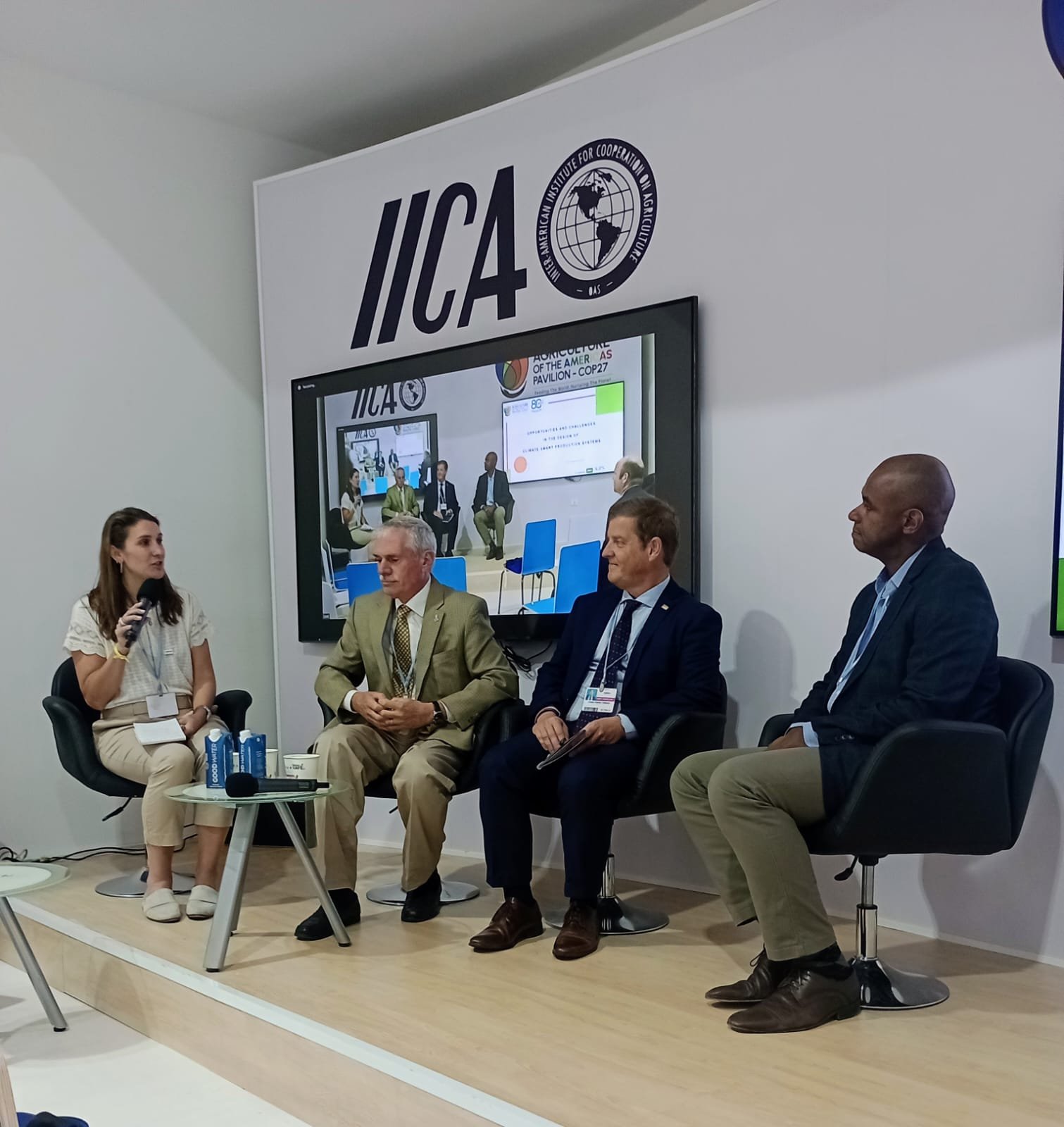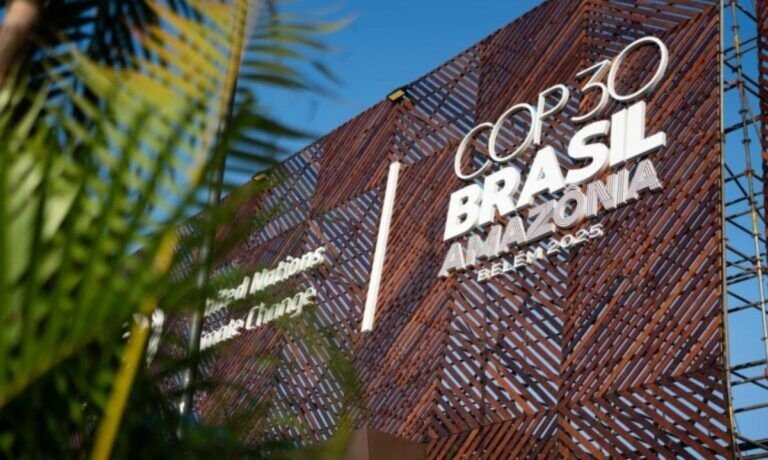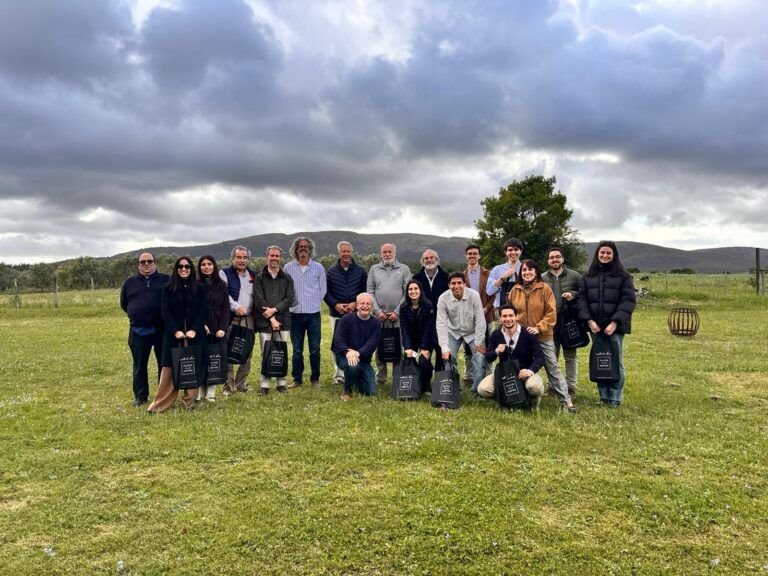Although the most relevant aspect of COPs is negotiation between states, the private sector participates in various ways. The role of agriculture (and especially that of the Southern Cone) is becoming increasingly important within the framework of mitigation strategies based on nature-based solutions (NBS for its acronym in English).
Within the framework of COP27, which was held in Egypt, GPS organized and participated in various events.
On the one hand, a virtual seminar was organized within the framework of the ICC (International Chamber of Commerce) global platform "Make Climate Action Everyone's Business Forum". The panel included the participation of Carmen Longa Virasoro (Partner Carbon Group, Argentina), Francisco Rosas (Professor of Economics, Universidad ORT Uruguay), Fabiana Alves (Executive Director of Rabobank, Brazil) and Carlos Gentile (Director of Sustainable Development, Fundación Argentina Global) and was moderated by Martín Fraguío (Founding Member of GPS Argentina). The video of the session is available on our Youtube Channel.
On this occasion, face-to-face panels were also organized in the "House of Sustainable Agriculture of the Americas" Pavilion, which the Inter-American Institute for Cooperation on Agriculture (IICA) installed in the Egyptian city of Sharm El Sheik. These events were organized jointly with CREA and AAPRESID, reinforcing our networking at the regional level.
Thus, during the morning of November 9, the event called: "Climatically intelligent production systems: solutions based on nature and the role of the farmer" took place. Moderated by Cristian Feldkamp, executive director of CREA, participated as speakers Marcelo Torres, vice president of AAPRESID; Bob Lowe, President of the Canadian Cattlemen's Association; Cecilia Jones, coordinator of the Sustainability and Climate Change Unit of the Ministry of Livestock, Agriculture and Fisheries of Uruguay; and Eduardo Bastos, CEO of My Carbon, a Minerva Foods company and Leader of the Sustainability Committee of ABAG (Brazilian Agribusiness Association, member of GPS Brazil).
Manuel Otero, Director General of IICA, welcomed the participants and highlighted the importance of the Americas as the continent that guarantees that humanity can feed itself. He pointed out that "we are making substantive contributions to face climate change and we have to show this with pride and strength, recognizing that we have agri-food systems that can be perfected, but that are by no means failed." Next, the speakers reaffirmed the key role of science for the formulation of pro-nature policies in the region, focusing on the importance of sustainable agriculture with good environmental practices that guarantee food security in the world. Regenerative practices for the protection of soils and other natural resources were highlighted, under a production to reduce carbon emissions to zero.
Marcelo Torres, Vice President of Aapresid, stated that “Argentina is already a leader in soil care, erosion control, the use of technologies and agricultural innovation. At AAPRESID, we work with strategies aimed at keeping soils alive and their implications for the efficient use of water, for less dependence on synthetic inputs, and for maximizing carbon sequestration.”
On the other hand, on the afternoon of November 9, the second event co-organized by Aapresid, AACREA and GPS took place, on "Opportunities and challenges in the design of climate-smart production systems". Moderated by María Cecilia Ginés (Aapresid), Martín Fraguío (GPS), Cristian Feldkamp (CREA) and Mauricio Rodrigues (CropScience Latam, Bayer) spoke.
“We are convinced that we are part of the solution, and we are because we have scientific evidence that, with certain climate-smart practices in agriculture and livestock, we can reduce emissions and be more efficient. These solutions include people, companies and the environment. In this sense, carbon is one of the fundamental aspects and another very important dimension is biodiversity. That is why the solutions must be adapted to each place and that is why there are no immediate solutions. A framework of agreements and policies that encourage sustained action in the long term is required.” Cristian Feldkamp (CREA) affirmed.
Along the same lines, Martín Fraguío expressed: “It is very important to be present in these forums to develop a shared language around the role of agriculture in mitigating climate change. The productive and natural ecosystems of Latin America are capable of mitigating greenhouse gas emissions as well as capturing and storing carbon in soils and biomass like no other region in the world. The role of the private sector and international organizations is crucial to communicate and clarify these concepts and spread this important message."
Closing the presentations, Mauricio Rodrigues highlighted the strategy and objectives that Bayer is developing for the development of agricultural systems that allow increasing productivity and, in turn, reducing environmental impact.
The "House of Sustainable Agriculture of the Americas" pavilion, which IICA installed at COP27, made it possible to showcase the key role of the agricultural sector for climate solutions and global food security, while making visible the contributions of producers and other actors in the sector in adaptation and mitigation of climate change.



